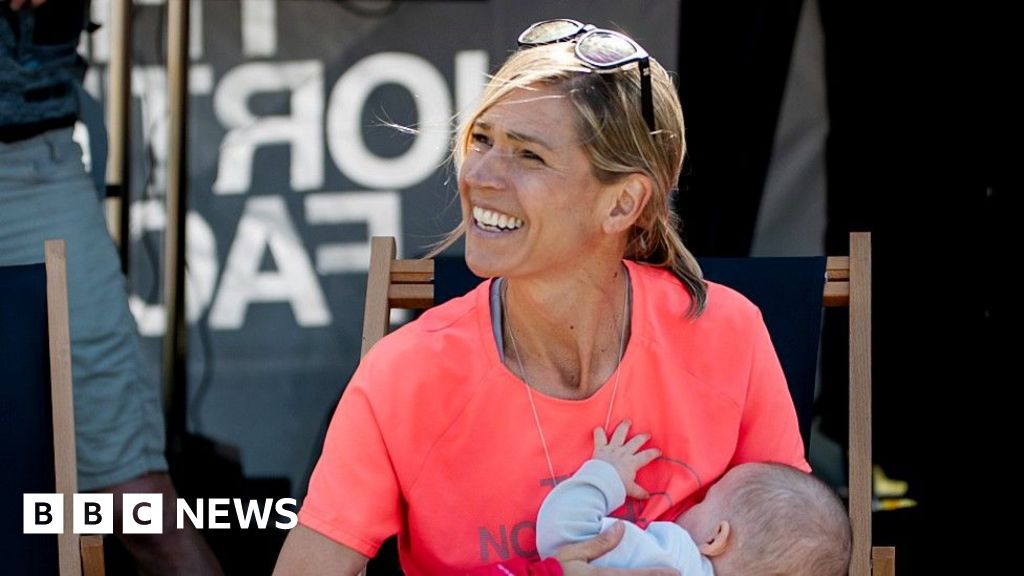When elite runners return to the sport after significant life changes, their experiences often transcend personal narratives, embodying a depth of mental and physical resilience that resonates with fellow endurance athletes. Stephanie Case, a Canadian ultrarunner and human rights lawyer, found herself thrust into the spotlight after winning the Ultra-Trail Snowdonia just months postpartum. However, her achievement was less about the finish line and more about an intricate dance balancing motherhood and personal goals. For those who havededicated themselves to endurance sports, the subtleties of her experience echo familiar themes: pacing, resilience, and the unwavering focus required to adapt in the face of life’s unpredictability.
Stephanie’s entry into the Ultra-Trail Snowdonia wasn’t a mere ambition; it was a calculated decision framed within the context of her broader journey through infertility, miscarriages, and IVF treatments. This multi-year process involved stepping back from the ultramarathons that had once defined her, a decision no athlete makes lightly. Yet, when she laced up her shoes again, it wasn’t a whimsical return; it was a reassertion of her identity as an athlete. This synthesis of motherhood and sport reveals the mental fortitude that many endurance athletes cultivate – the understanding that every run is not just a physical challenge but a mental negotiation with endurance itself.
Her race was notable, not merely for the finish time but for how it was executed in tandem with breastfeeding her daughter, Pepper, at designated points along the course. In this dynamic exchange of motherhood and athleticism, there is an underlying philosophy about pacing—not just in the sense of managing a race, but in understanding one’s own physical and emotional limits. Stephanie approached the race without lofty expectations beyond simply navigating the terrain while meeting the needs of her baby. This perspective mirrors the mindset of seasoned athletes who know that sometimes, it’s about maintaining momentum instead of striving for perfection.
In conversation, Stephanie shared that the experience felt like reclaiming a part of herself that trauma had almost obscured. For athletes who’ve faced injuries or setbacks, there’s a parallel appreciation for the return—whether to training or competition—that is often less about the accolades and more about grounding oneself in the identity that extends beyond any singular event. Stephanie’s ability to acknowledge the challenge while honoring her needs as a mother is a testament to resilience, reflecting an athlete’s innate capability to adapt and respond to evolving circumstances.
Just a short distance away in Wales, another embodiment of this resilience was emerging. Enlli Williams, an active solicitor and new mother, was discovering the mental health benefits of running in the wake of childbirth. Though her path included significant anxiety, especially in the early evening hours when worries about sleep would set in, she recognized the necessity of staying active. For endurance athletes, the mental aspect of training often parallels physical training; the rituals, routines, and even camaraderie help bolster resilience in the face of personal challenges.
Enlli’s training for the SheUltra, a women-only ultramarathon, involved a balancing act of preparation and motherhood, reminiscent of strategies athletes typically employ when navigating life’s complexities. Like Stephanie, she prioritized her daughter’s needs while adapting her training around them. Each run became a multi-faceted engagement, allowing for moments of reflection and connection with herself—a theme that resonates deeply within the endurance community. The correlations between physical training and mental clarity are not dissimilar to the discipline athletes cultivate, reminding us that physical strength is often built on a foundational layer of mental resilience.
Both women aimed not just to race but to contribute to a narrative about what motherhood can look like within the framework of endurance sports—challenging the stereotype of new mothers relegated to home-based responsibilities. As athlete advocates, they highlight that returning to form can be a nuanced experience. It’s a matter of navigation and remembrance, understanding that motherhood does not solely define one’s identity but adds another dimension to it.
As seasoned athletes know, the journey often entails recalibrating expectations, embracing the nuances of training adaptations, and understanding how life events can shift one’s focus, not diminish it. The pacing strategies employed during their races parallel tactical approaches athletes take in long-distance runs: know when to push forward and when to conserve energy for the long haul. This delicate balance reflects a mature understanding that endurance is not merely physical; it also encompasses emotional and psychological strategies that foster resilience.
The images of women navigating motherhood while pursuing their athletic passions also resonate with the shared experiences of the endurance community, where support and shared stories create bonds. Through open discussions about balancing motherhood with competitive ambitions, athletes can find clarity and camaraderie, inspiring a movement toward more holistic representations of athleticism. The victories of these women serve as a backdrop for conversations about mental health, identity, and community in sports, rather than as isolated incidents or sensational achievements.
In the landscape of endurance sports, the takeaway is clear. The road ahead may be fraught with challenges—be it balancing personal responsibilities or dealing with the inevitable ups and downs of racing—but the capacity to adapt, grow, and redefine one’s connection to endurance is what ultimately matters. May these stories encourage fellow athletes to embrace their journeys, grounded in the understanding that true resilience lies in the ability to honor one’s needs while remaining fully committed to the pursuits that ignite their passions. On the next long run, remember: every mile is a dialogue with your limits, and embracing those conversations is where growth begins.
